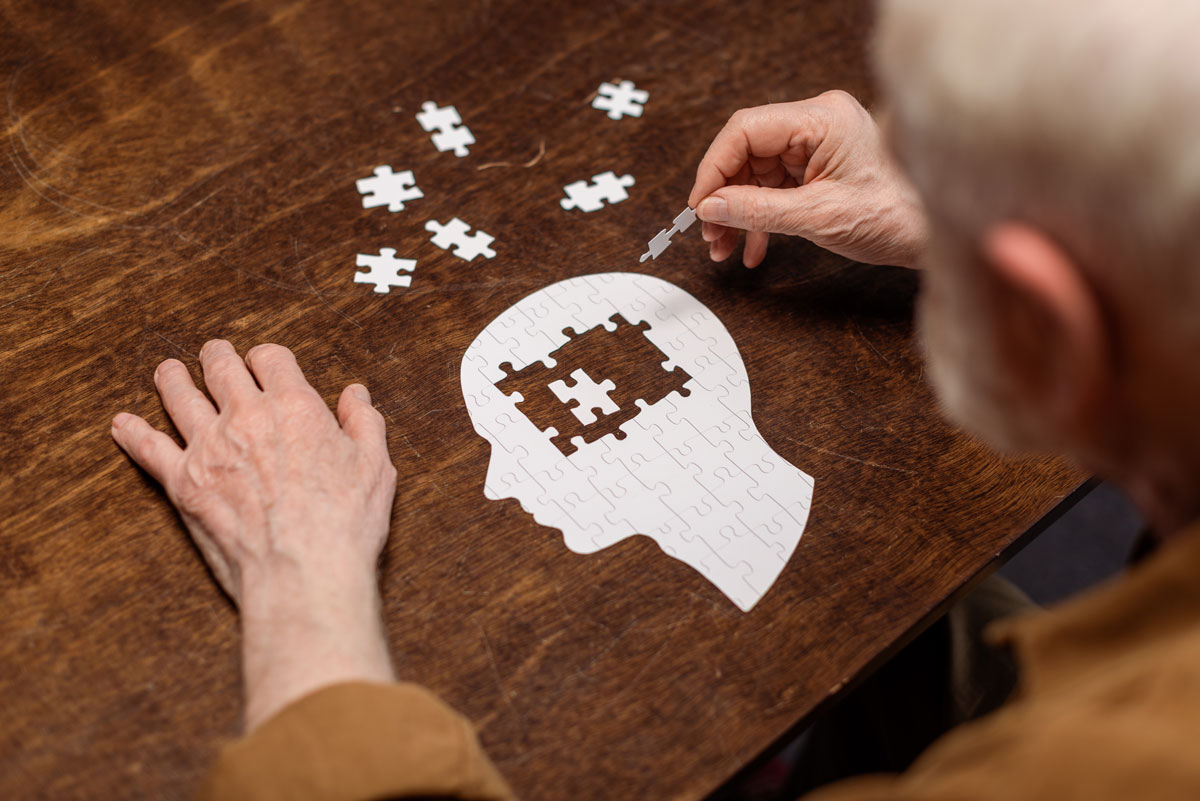Guest Contributor: Daniel Kuhn, LCSW, Vice-President of Education, All Trust Home Care
Sorting out fact from fiction has become challenging in the political arena due to claims about “fake news” and rampant conspiracy theories. However, such challenges have always plagued consumers of healthcare eager for cures and treatments for perplexing medical conditions such as Alzheimer’s disease and other dementias. Thus far, effective means of prevention and treatment have been elusive. As a result, many people search for pills, procedures, and unorthodox therapies that offer a glimmer of hope. Too often this search leads to great costs and more frustration. It is important to carefully evaluate claims of a “scientific breakthrough.”
Five drugs approved by the Food and Drug Administration (FDA) for treating Alzheimer’s may help lessen symptoms for a limited time but their lasting benefits have proven disappointing. Just recently the FDA approved a sixth and highly controversial drug, Aduhelm, based on evidence that it can reduce a likely contributor to Alzheimer’s, rather than proof of a clear benefit against the disease. Unfortunately, this new drug is not the “magic bullet” that everyone hopes for. It is natural to wonder if something outside of conventional sources might reverse, stop, or improve symptoms.
Federal laws bar explicit health claims on products sold as dietary supplements. Nevertheless, there are numerous herbs, minerals, vitamins, and hormones touted by retailers as “memory boosters.” A growing number of such products may seem appealing at first glance: melatonin, ginkgo biloba, lecithin, zinc, ginseng, garlic, coconut oil, lavender, and Vitamin E, to name but a few. Most of these products are probably worthless and some may actually be harmful. Such products are not regulated by the government and have not withstood the rigors of scientific scrutiny. As a result, pseudoscience and anecdotal claims are slickly marketed to unknowing consumers who end up buying modern day “snake oil.”
Apart from developing better drugs for people with dementia, scientists are also at work developing means of prevention. Again, there are loads of products touting ways to prevent or reduce the risk of dementia. Unfortunately, none of them have proven effective. Just recently the National Institute on Aging commissioned a committee of experts to conduct an extensive scientific review of published evidence and provide recommendations regarding prevention of dementia (www.nap.edu/24782). This panel noted there is “encouraging” evidence that three interventions might prevent dementia: physical exercise, cognitive training, and lowering high blood pressure. The panel also noted that while a host of cognitive training games and other commercial products exist, there is not enough information to support particular computer-based brain-training applications.
The panel also concluded that the above interventions might prevent healthy people from developing dementia, but there was little evidence that they could slow decline in people already living with dementia. Although the panel was cautionary about interventions to prevent dementia, it stated that many other “low-evidence” interventions deserve further investigation. These include diabetes treatment, depression treatment, lipid-lowering treatment, sleep quality interventions, social engagement interventions, and vitamin B12 plus folic acid supplementation. Dietary interventions such as the MIND diet developed by Chicago researchers are getting increased attention: www.mind-diet-trial.org
All of us must exercise a healthy skepticism about any product or service that claims to treat or prevent dementia. No one can deny the need for fresh approaches to solving the complex biological mysteries of dementia and legitimate research offering the chance of real progress must be supported. However, chasing after questionable remedies is misleading and frustrating. Family caregivers are better off preserving their time, energy, and money for the practical matters of daily care, including self-care. Caring for the person with dementia and oneself is challenging enough without getting side-tracked by false hope.
For more information about treatment and prevention of dementia, see:
Are you interested in learning more about the latest dementia news and findings?
Join us for a virtual continuing education event presented by Dan Kuhn, LCSW…
Current Trends in Research in Alzheimer’s Disease and Other Dementias
Tuesday, June 29, 2021 at 12:00 pm – 1:00 pm via Zoom
Click here to register online!

More About Dan Kuhn
All Trust Home Care is proud to have Dan Kuhn, LCSW, in the position of Vice President of Education. Dan has authored two books, The Art of Dementia Care and Alzheimer’s Early Stages: First Steps for Family, Friends and Caregivers. Dan leads the All Trust Academy, which offers quality education and resources for caregivers, professionals and families.
For more than 40 years, Dan Kuhn has served as an educator and advocate in the fields of health and aging. His focus has been on dementia care, end-of-life care and family caregiving. Dan previously worked with the Alzheimer’s Association and The Rush Alzheimer’s Disease Center. Equally important to his extensive career, Dan authored or co-authored over 50 professional publications including journal articles, book chapters, educational videos, web-based programs and training manuals. In that time, he has given hundreds of presentations to professionals and family caregivers. In addition, he has initiated and led grant projects aimed at improving the care of people with advanced dementia living in the Chicago area. As a result, education, training, consultation and evaluation have been offered throughout the area.


